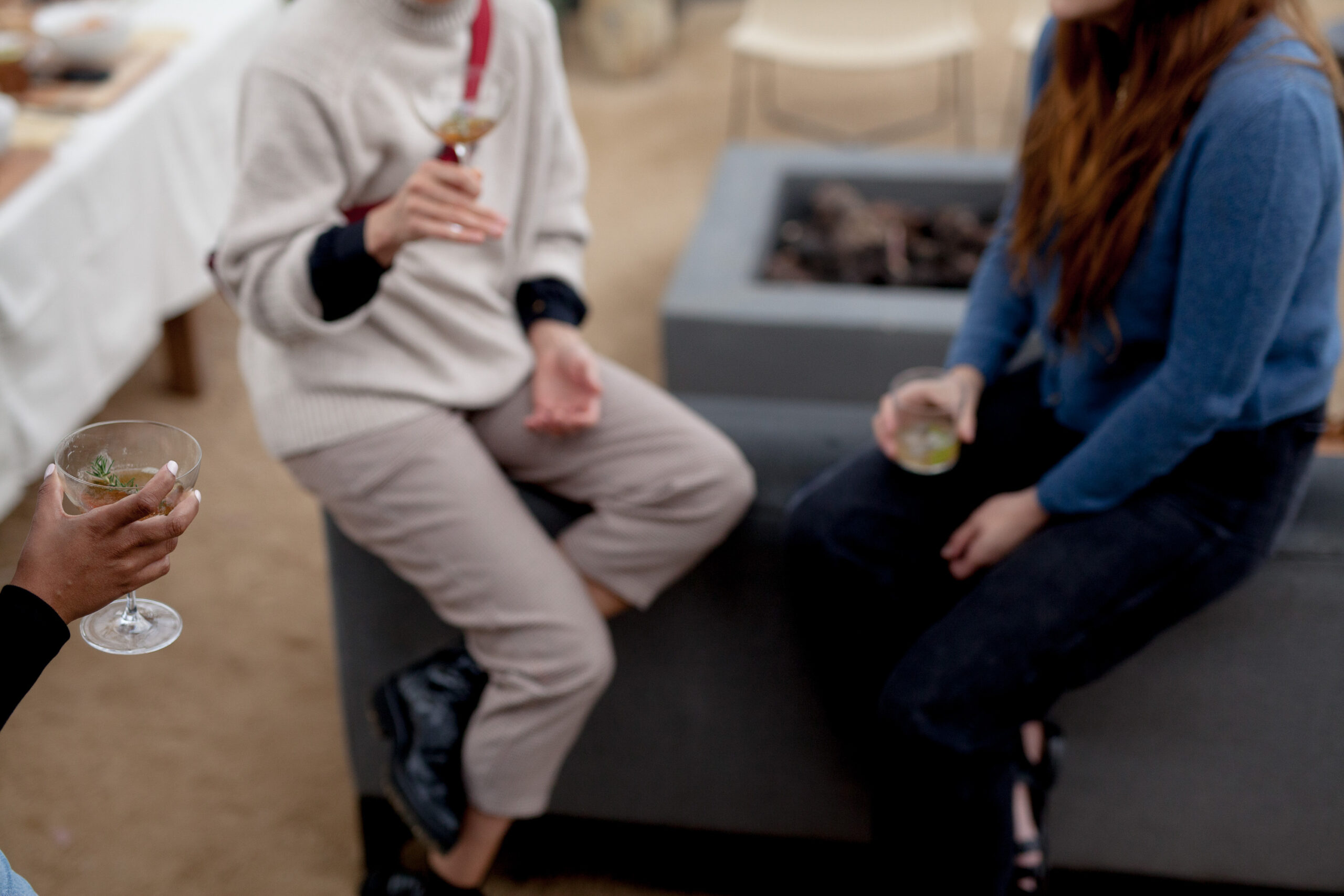Sara Sweat, MA – Founder & CEO, A Life Curated
Whether from the relentless expectations of work, the endless responsibilities at home, or the deep seated desire to bring the “best version” of ourselves to everything we do – burnout is a big problem.
In our fast-paced, hyperconnected world, it has become an increasingly pervasive issue. So pervasive, in fact, that we seem to have gone deaf to its cry. Normalizing it as “just the way things are”, or worse – actually admiring it – worn like a badge of honor we’re almost proud to achieve.
But, ignoring burnout has consequences.
The American Psychological Association advises that high levels of stress are linked to a variety of health problems, including heart disease, stroke, high blood pressure, diabetes, depression, anxiety, and a weakened immune system.
The World Health Organization views work-related stress as a major global health issue, costing billions of dollars each year in lost productivity and healthcare costs.
So, why aren’t we listening?
Adam Grant, a renowned organizational psychologist, points to our environment – citing increased demands of work, the rise of the “always-on” culture, and the blurring of boundaries between work and personal life to account for our situational deafness.
Researcher and author, Brené Brown, highlights the role of shame and vulnerability in burnout. She notes that withdrawal from our support systems when we feel ashamed of our mistakes or imperfections can make it harder to prevent burnout.
I think…we’ve just gotten too strong for our own good.
Research on the topic of burnout suggests that it disproportionately impacts the strong. Those who are highly motivated and driven. The people we can always count on. The rockstars of the team. The people with impeccable standards and a supernatural grit.
People…like me.
The signs of my own burnout had been present for months. The Sunday blah’s that started on Saturday afternoon. The feeling of dread when I opened my email. The constant emotional vacillation between exhaustion and rage. The relief whenever a call or event was canceled, followed by the overwhelming desire to use the time to check out & veg. I wasn’t sleeping well, eating well, & was glued to my desk for a minimum of 12 hours a day.
But, I kept saying things like “I’d rather be busy than bored”! I continued saying “yes” to things I did not have the energy for because it was expected of me. And, I didn’t have the energy for the battles that would ensue if I said “no”, anyway. I maintained my unrealistically high standards for myself because “it’s not enough to get things done – the way we do them matters”.
It was as though every guiding principle that had helped me create my past success was working against me. And, I felt like I was failing. All. The. Time.
Then, I heard myself say it out loud.
“I hate my life”.
Nothing particularly awful was happening at the time. I was getting something out of a closet and its poorly balanced contents came spilling onto the floor. The kind of thing that happens every day in households fortunate enough to have more stuff than space. A literal overflowing of blessings that most of the rest of the world would be happy to have as a problem.
But, for me? It made me hate my life. My beautiful, blessed, magical – worked my whole life for – life.
I was burned out.
The Ancient Wisdom of Rest
In his book, Sabbath, author Wayne Muller highlights the ancient wisdom in surrendering to the human requirement of rest. “If we only stop when we are finished with all our work, we will never stop, because our work is never completely done.”
He goes on to say, “If we do not allow for a rhythm of rest in our overly busy lives, illness becomes our Sabbath.” In other words, if we don’t allow ourselves to slow down…something will force us to.
By the time we reach a state of burnout, our nervous systems are usually pretty shot. We desperately need rest. But, the high levels of stress hormones in our bodies can make that feel impossible.
Trying to read, meditate, or even take a weekend nap can leave us anxious, frustrated, & ironically…exhausted. Sometimes, we need something more.
More Life in Our Life
If slowing down and resting feels out of reach, we can start by doing something new. Getting a little more life in our life.
Meeting friends, going for a walk, making dinner with your partner, listening to music or interesting and fun books. Everyone has different activities that feed and nurture them. But, when the demands of life are high, these life giving activities tend to be the very first to go.
Being intentional about adding them back can be a game changer for your nervous system & your ability to recharge. In the coming weeks, we’ll deeply discuss five critical components that help us combat burnout & get more life back in our lives.
Beauty. Beauty may be in the eye of the beholder, but it has reliable benefits for all of us. Noticing the beauty already around us is a great first step toward getting your spark back. Not noticing the beauty? Try creating it. Infusing mundane tasks with ritual and ceremony increases the beauty around us.
Inspiration. The routine of daily life makes it hard to feel inspired. But, for the human spirit, inspiration is fuel. It sparks creativity, challenges convention, & moves us toward action. If monotony has programmed it out, we have to be intentional about seeking it.
Storytelling. For thousands of years, our stories have taught, encouraged, and awakened us. It’s an art form – the practice of which is becoming increasingly rare. Find small ways to share your stories with the people in your life and listen to their stories in return. You’ll be amazed at what you’ll learn.
Connection. We are meaning making creatures. We see the connections between disparate ideas all the time. The ones we make typically highlight what’s most important to us. Pay attention to the connections you’re making & you’ll gather precious insight into your values. Define your values & you’ll get clarity about what you need to recharge.
Community. Physiologically and psychologically we are built to live in community. Whether our family, friends, colleagues, teammates, or philanthropic partners, we thrive when we are deliberate about both giving to and receiving from our community.
While we’ll be exploring these five ways to recharge in more detail, I encourage you to pick just one to start with this week.
Turn off the radio during your morning commute and let the silence reveal something beautiful around you. Call a friend you haven’t spoken to in awhile and revisit a story from a fun time the two of you shared. Spend the extra 15 seconds to froth the milk in your morning coffee & notice how much it impacts your enjoyment of it.
Get just a tiny bit more life into your life. And, tell us how it goes.
You’re strong. You’ve got this.


